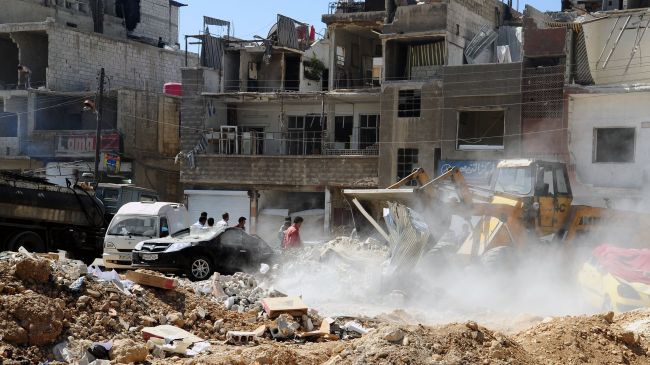
A political commentator says the US and the Israeli regime are using al-Qaeda to break Syria into pieces according to Zionist plan for the Middle East, Press TV reports.
“This is all part of a destabilization operation aimed at Syria and the Middle East designed to break Syria up into pieces according to the ‘Yinon Plan’ (Zionist plan for the Middle East) that was drafted in Israel several decades ago,” Dr. Kevin Barrett told Press TV on Saturday.
Commenting on Syria’s request for the United Nations to classify the al-Nusra Front as an al-Qaeda-linked group, Barrett described as “hypocritical” the approach of the UN and world major powers such as the US and its NATO allies towards al-Qaeda.
In letters to UN Secretary General Ban Ki-moon and the Security Council on April 11, the Syrian Foreign Ministry said Damascus expects the UN to fulfill its role to safeguard global security and classify the foreign-sponsored group as terrorist.
The foreign-backed militants have formally pledged allegiance to al-Qaeda leader Ayman al-Zawahiri. Abu Mohammed al-Jawlani, the head of the al-Nusra, said the group was loyal to the al-Qaeda chief in an audio message on April 10.
The political analyst said the US and NATO justify their wars and drone campaigns across the world under the pretext that al-Qaeda seeks to destroy the US and on the other hand support and arm groups in Syria that openly “declare themselves to be al-Qaeda.”
“And yet in Syria, which is the main place where we have people who are declaring themselves to be al-Qaeda actually fighting and conducting terrorist attacks, it seems that the big global institutions like the US, NATO and the UN are perfectly happy to not only allow this so-called al-Qaeda radical Islamic group to be wreaking havoc in Syria and destabilizing the Syrian government, but they are actually arming them.”
“The hypocrisy of these Western powers is just getting way out of control,” Barrett concluded.
While al-Qaeda-linked groups have been listed as terrorist entities under sanctions by the United Nations, militants in Syria, including those belonging to the al-Nusra Front, have been receiving all forms of support from the West.
The al-Nusra Front has been behind many of the deadly bombings targeting both civilians and government institutions across Syria since the beginning of violence in March 2011.







